Election 2022: Why Solomon Islanders doubt the wisdom of their PM
More than 90 per cent of residents do not want their fortunes tied to China and believe corruption in government is high.
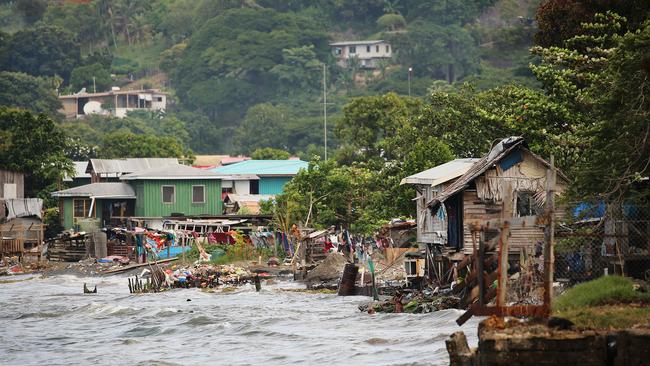
From the litter-strewn mean streets of Honiara on Solomon Islands, the view of Beijing’s offer to upgrade hospitals and protect a Chinese merchant class that is routinely set upon in riots and looting is a world away from the considerations being made in Washington and Canberra.
For Prime Minister Manasseh Sogavare, under constant threat of civil uprising, China’s promise of armed security and discretionary funding to help cement his grip on power proved irresistible.
Yet more than 90 per cent of residents surveyed across the island nation do not want their fortunes tied to China and believe corruption in government is high and rising.
Long gone are the days of empire in Honiara when, as part of the Commonwealth, the city was bustling with sporting clubs and an active social calendar.
Years of civil unrest provoked by ethnic tensions between the main island, Guadalcanal, and the nation’s most populous island, Malaita, have sapped the life force from the national capital, where a generation has been lost to formal education and the average age is in sharp decline.
When The Australian visited Honiara in 2020 as part of a series of feature articles on the Chinese Diaspora in Asia and the Pacific, the city clearly was gripped by a malaise of enduring social dysfunction.
More than a dozen children and their parents were camped out in a cardboard shanty town among the refuse at the top of the city’s major rubbish dump.
Nearby, on the city fringe, children were swimming amid tonnes of plastics and other rubbish, including soiled nappies.
The view from China has been one of easy pickings.
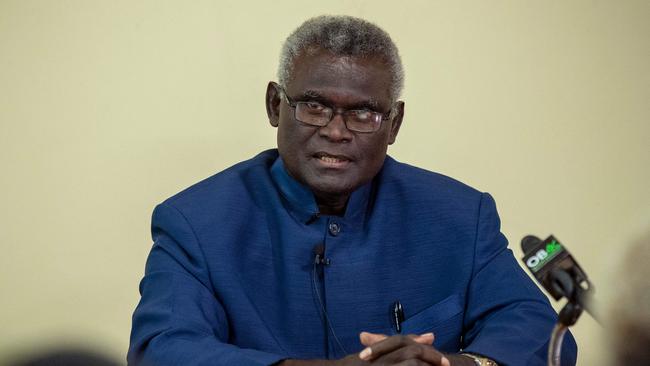
One long-time resident who had experienced the brunt of looting and violence said: “To China, the GDP of this country is nothing. One private (Chinese) company could buy this country overnight.”
Political authority
The Solomons has been struggling to recover from civil conflict that took place from 1998 to 2003, which started as ethnic tension between heavily armed militants on Guadalcanal and settlers from Malaita.
The Tensions were a period of civil unrest in Solomon Islands, characterised mainly by fighting between different ethnic militant groups.
By late 1999, the government declared a state of emergency.
Lawlessness, widespread extortion and ineffective police prompted a formal request by the Solomon Islands government for outside help leading to the Regional Assistance Mission to Solomon Islands led by Australia and New Zealand, which ran from 2003 to 2017.
“In 2006, when they burned Chinatown down, that was the end of it,” local business owner Andrew Leung said.
“It went from bad to worse and then worse to worse.”
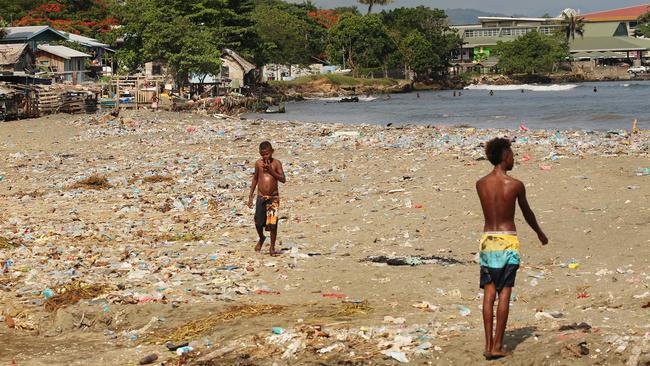
The RAMSI mission was completed in 2017 but the damage has been long-lasting.
Since our visit in 2020, there has been a pandemic and a resurgence in violence as forces on Malaita have again challenged the political authority of rulers on Guadalcanal and the close connections being forged between Mr Sogavare and Beijing.
Rioting and looting in November 2021 led to the destruction of $811m worth of infrastructure.
A report on the violence released this week showed that a total of 81 businesses and buildings were affected, with 53 fully damaged and 28 partially so.
The total loss was equivalent to 6.1 per cent of the pre-unrest 2021 GDP value.
Much of the violence was directed towards the Chinese community that controls the majority of retail commerce.
When the riots broke out, Australia was again requested by Solomons to intervene and forces effectively helped to secure the position of Mr Sogavare, who has now sought the protection of the People’s Republic of China.
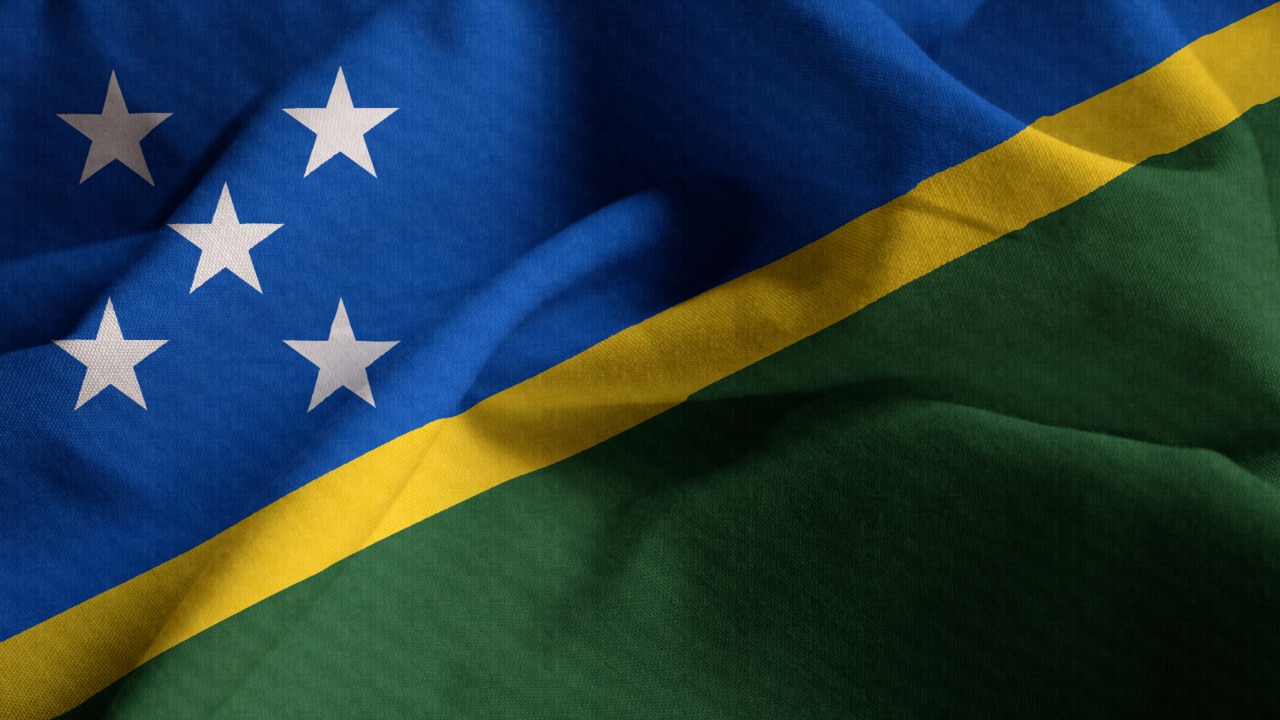
China’s motivation is not altruistic, but military and strategic.
Prior to World War II, Honiara did not exist; it developed around the site of the US military headquarters.
In 1952, it officially replaced Tulagi as the capital of the Solomons.
The proof of Solomon’s strategic importance can be found sitting at the bottom of Iron Bottom Sound, named after the dozens of aeroplanes and ships lost in the Battle of Guadalcanal during 1942-43.
Militarisation of Honiara, the scene of the most epic battles between Japan and the US during World War II, would allow China to break the second chain of US containment of China.
The first chain is The Philippines, Taiwan, South Korea and Singapore.
The second ring, farther from the Chinese mainland, is Australia, Solomon Islands, Papua New Guinea, Guam and Hawaii.
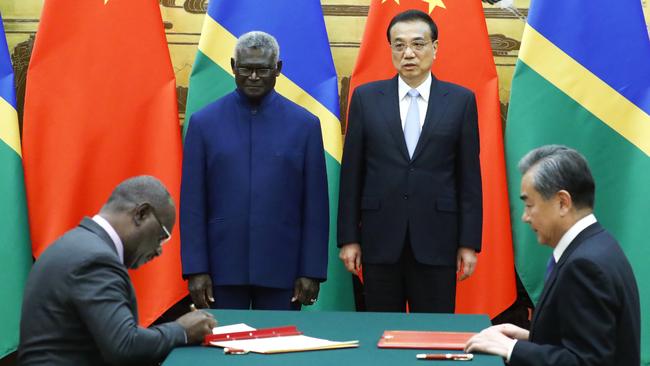
Turning point
China’s ambitions in Honiara are mirrored in Papua New Guinea, where billions of dollars are being spent on infrastructure and local small business has been unable to compete with the relentless expansion of Chinese-backed stores.
A port, ostensibly for fishing, is being proposed close to Australia’s northern mainland border.
The warning signs for Australia have been building for years.
A turning point in the Solomons came with failed attempts by China in 2019 to lease an island there to establish a deepwater port.
In September 2019, the Solomons dropped its longstanding recognition of Taiwan in favour of the PRC.
China quickly established an embassy on Honiara and set about negotiating a security pact with the Sogavare government, which has now been signed.
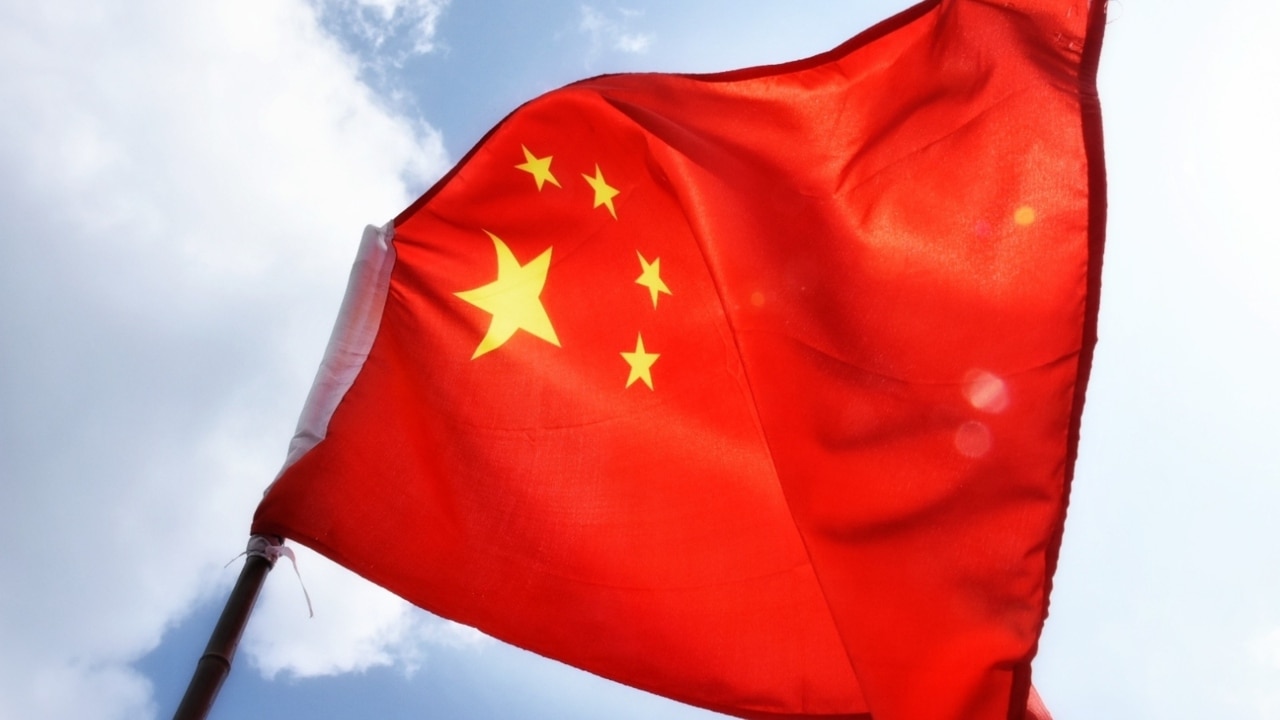
Mr Sogavare said in Honiara this week he would not disclose details of the security pact until he had had further discussions with Beijing, but he asked other nations to “respect the sovereign interests of Solomon Islands”, to which the country had subscribed under the Biketewa and Boe declarations on regional security by Pacific Island leaders.
The Boe declaration built on the 2000 Biketewa declaration and reaffirmed that climate change was the single greatest threat to the livelihoods, security and wellbeing of the peoples of the Pacific.
It recognised “an increasingly complex regional security environment driven by multifaceted security challenges, and a dynamic geopolitical environment leading to an increasingly crowded and complex region”.
Signatories said they would “respect and assert the sovereign right of every member to conduct its national affairs free of external interference and coercion”.
The agreement reaffirmed the right of members to individually and collectively address security issues and concerns.
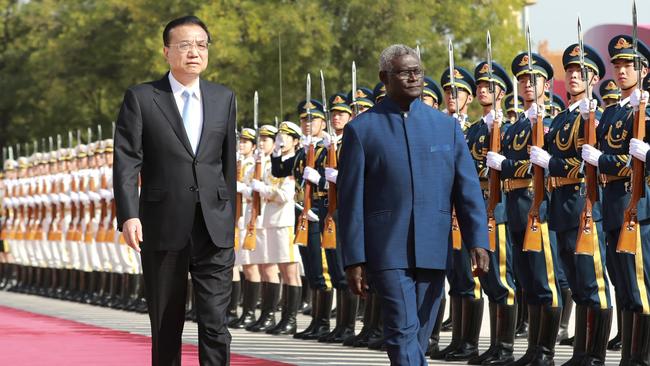
Mr Sogavare said the China agreement would “not adversely impact or undermine the peace and harmony of our region”.
“Let me once again reiterate that Solomon Islands’ security co-operation with China is guided by the country’s foreign policy of ‘Friends to all and enemies to none’.
“It complements our (2017) security agreement with Australia,” he said.
The PRC acted quickly to establish an embassy in Honiara after the switch in allegiance from Taiwan.
It is expected to do the same now and quickly build a security presence in Honiara following the signing of the latest agreement.
Local opinion polling has shown that Mr Sogavare’s decision to embrace the PRC is not popular across the Solomons.
An opinion poll undertaken in Honiara following last November’s riots found more Solomon Islanders wanted the country to be diplomatically aligned with liberal democratic countries.
Ninety-one per cent of people surveyed selected liberal democratic countries, with only 9 per cent answering “China”.
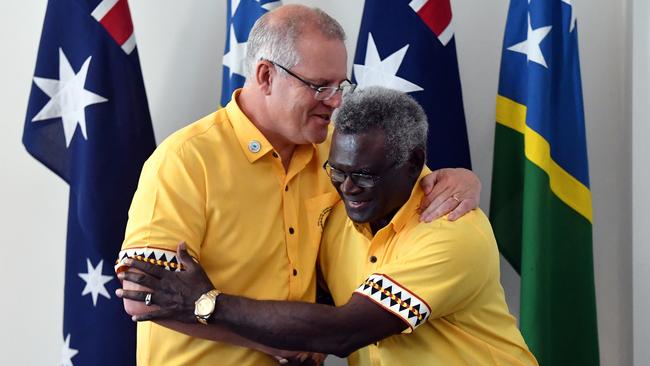
Asked whether Solomon Islands should receive financial aid from China, 79 per cent answered “No”, with just 21 per cent answering “Yes”.
Eighty-three per cent of those surveyed said they believed there was corruption in the national government; 68 per cent said they believed the level of corruption had increased.
Security experts fear a repeat of China’s military expansion in the South China Sea.
Despite years of denials that it would do so, China has build major military fortifications on islands in the South China Sea, which it has used to attempt to dominate regional neighbours.
Mr Sogavare signed the Solomons security agreement with China against the express wishes of Australia and the US, who are now facing a much more complicated security environment in the Pacific.



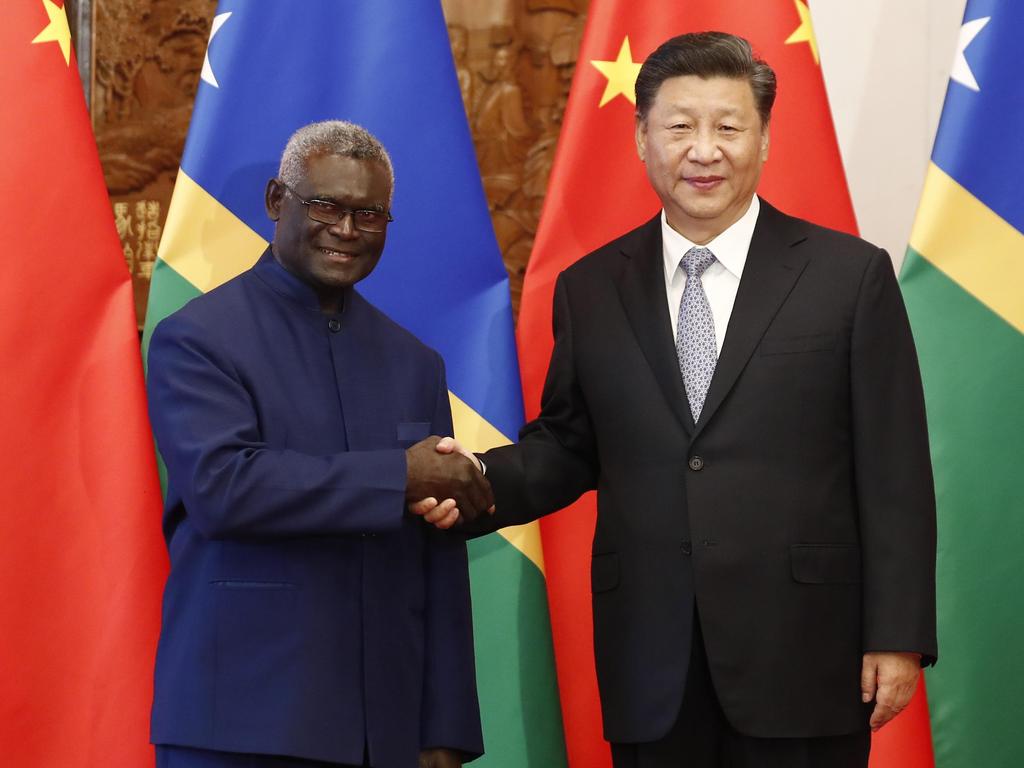

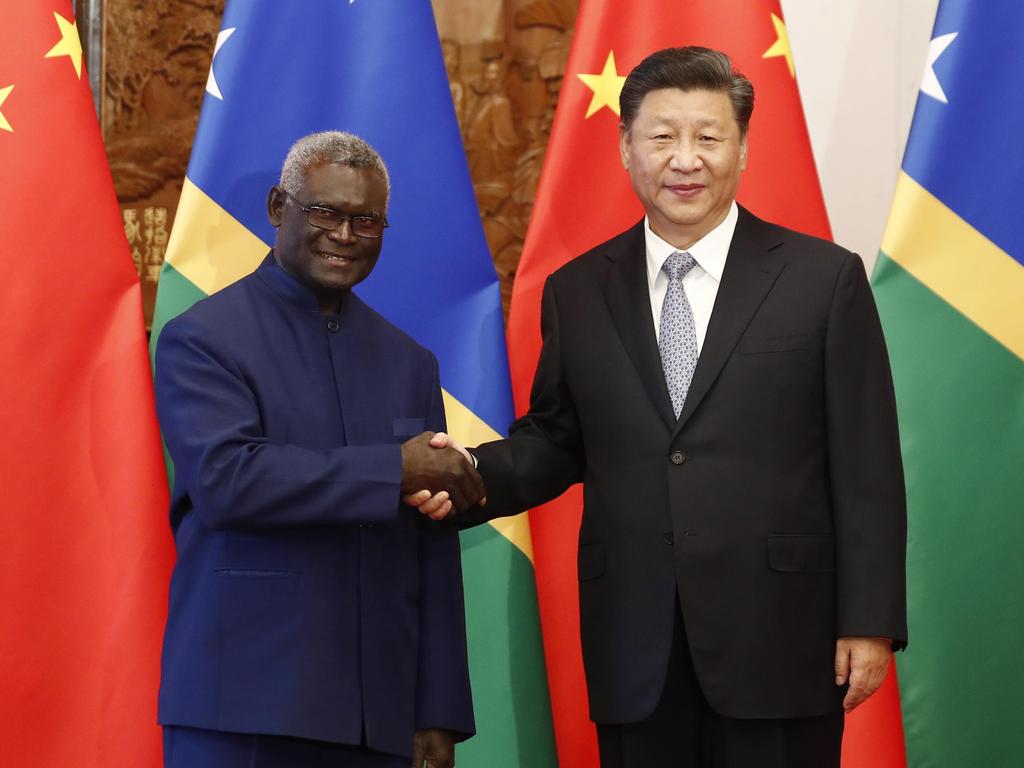
To join the conversation, please log in. Don't have an account? Register
Join the conversation, you are commenting as Logout